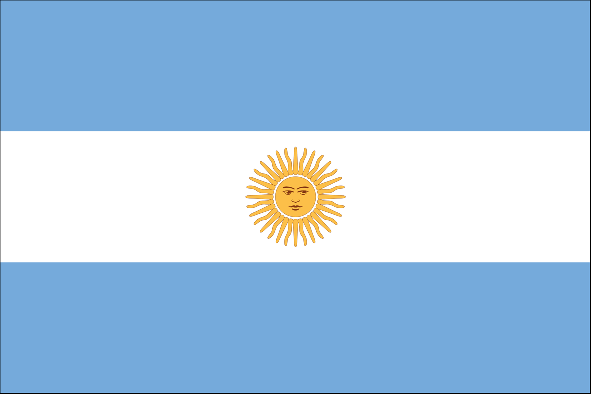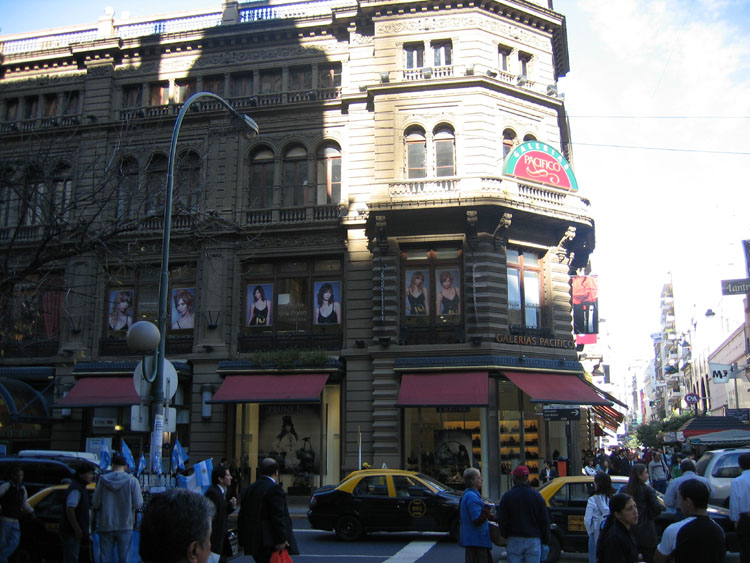
Two blocks south of our hotel we found the Galería Pacífico. This is just one of many nice malls in Buenos Aires. We would return here many times for lunch in its food court. On our first day dad introduced me to pizza with "fainá", a thick slice of corn bread that sits on top of the pizza. It was very good!

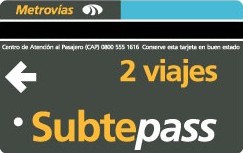
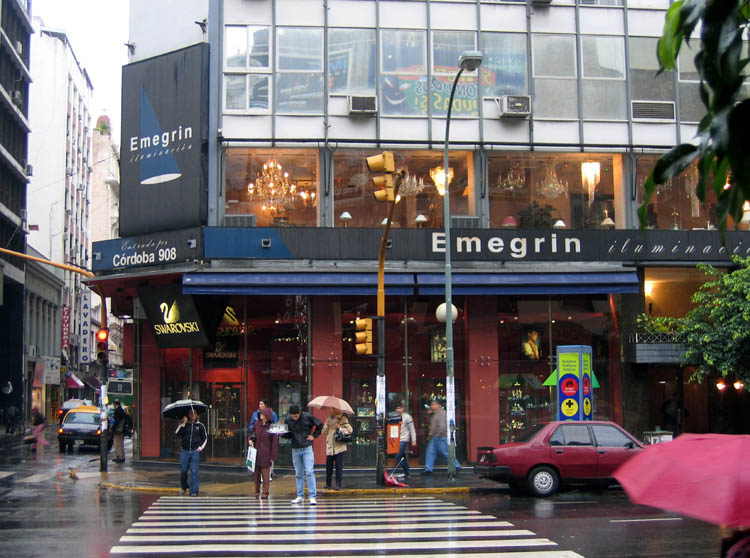

We walked on to see the great Teatro Colón, which is the Opera house. This end of the building is actually the rear. It has been taken over by a few homeless people, which is unfortunate. It was here in the 1950s that President David O. McKay spoke to the members of the LDS church on an historic occasion. (S34°36' W58°23')
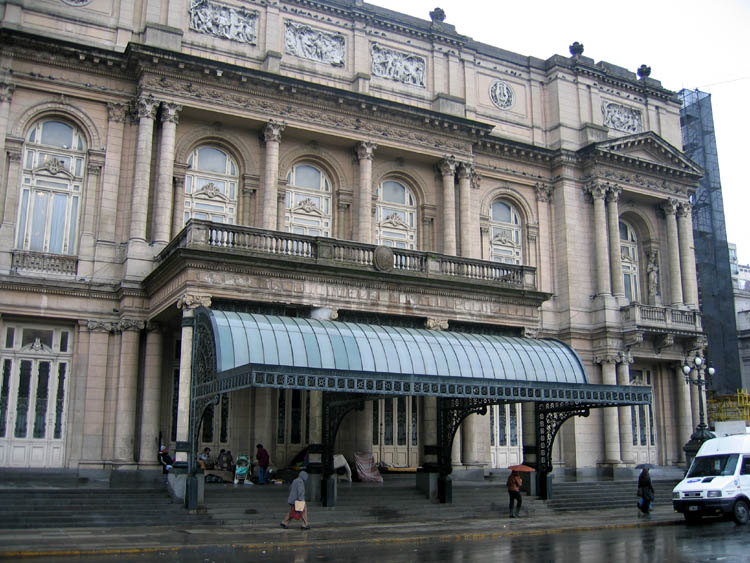
Dad was interested in seeing his old "mission home". Just near the back of the Teatro Colón was a subway station and we headed to Virrey del Pino, a suburb of Buenos Aires where his old "mission home" used to be. Note the nice mural in the station.
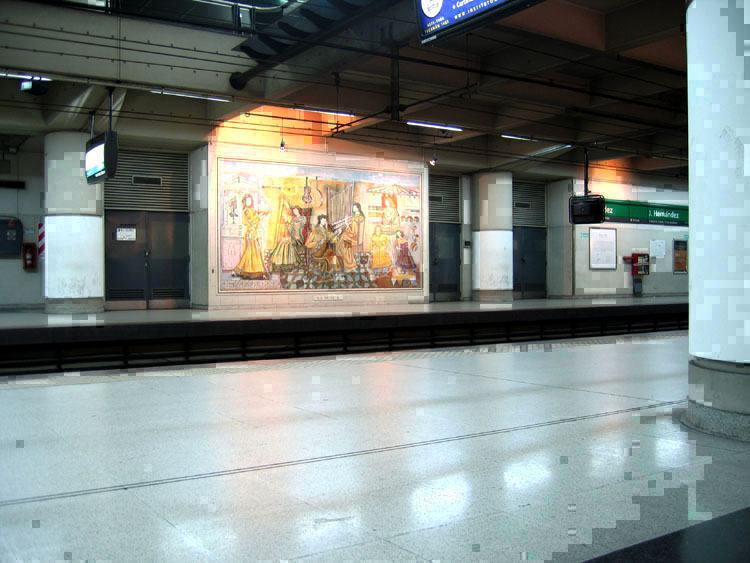
Here is Dad at the subway station at Virrey del Pino as we are about to go up to the ground level and walk over to the "mission home".
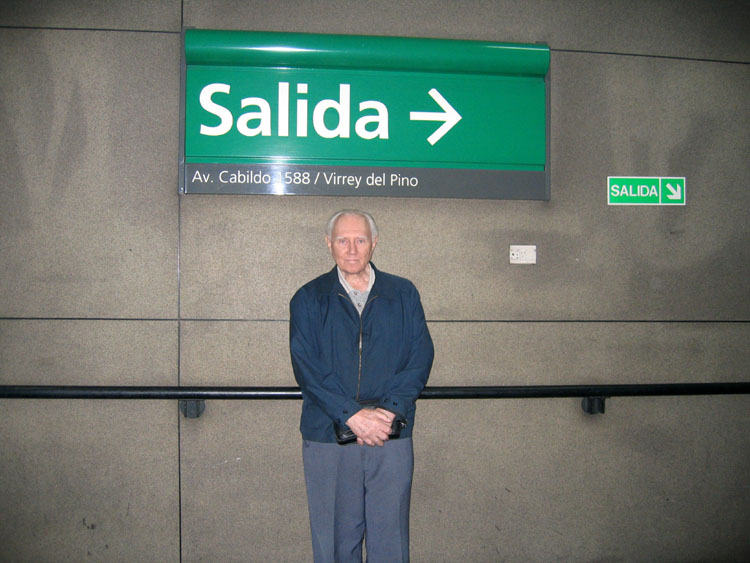
We discovered that the old "mission home" at 2130 Virrey del Pino had been torn down and a large highrise apartment building had been built in its place (seen at the left in this photo). However, next door to it was this older building that was somewhat similar in appearance and date to the old "mission home", so here is Dad standing there. (S34° 34' W58°27')

A sharp little Mercedes A-Class. I wish they sold these here in the US. The Mercedes A160 CDI, for example, averages 49 MPG overall, and does 54 MPG on the highway.
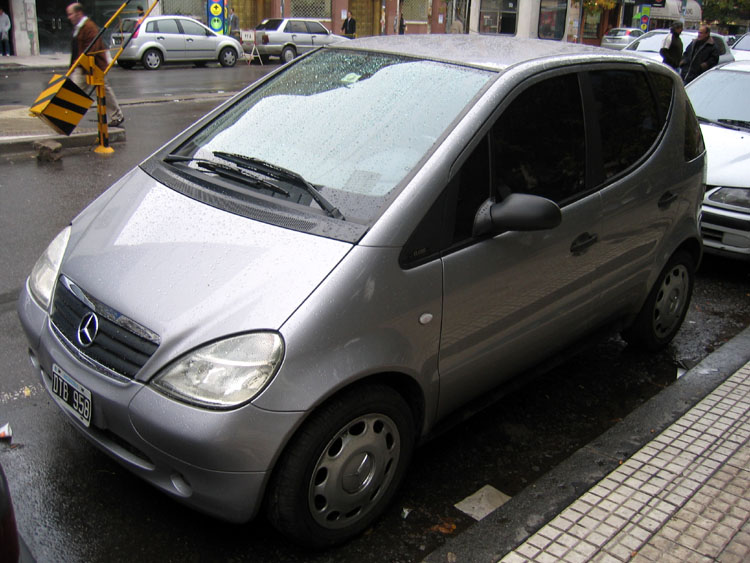
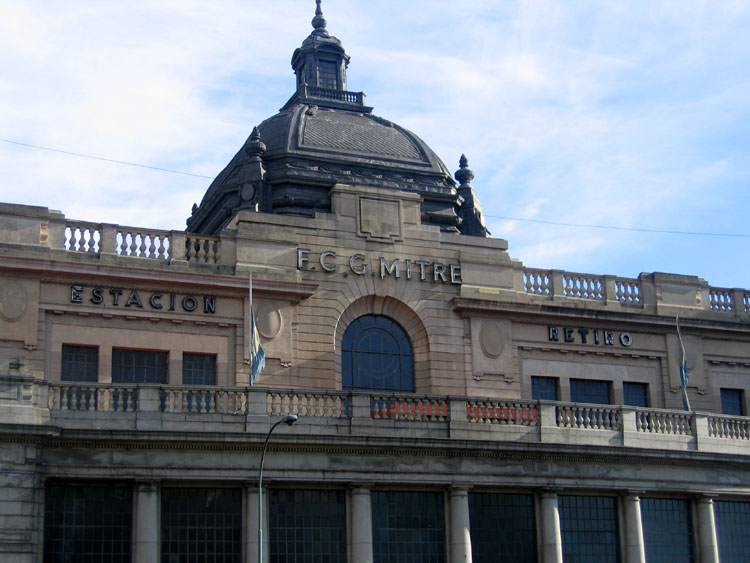
We had a 45 minute trainride with a half a dozen stops and arrived at the railroad station in Tigre, 17 miles NW of downtown BA. (S34°25'24" W58°34'55") This station was much nicer, cleaner, and lighter than the old downtown station.
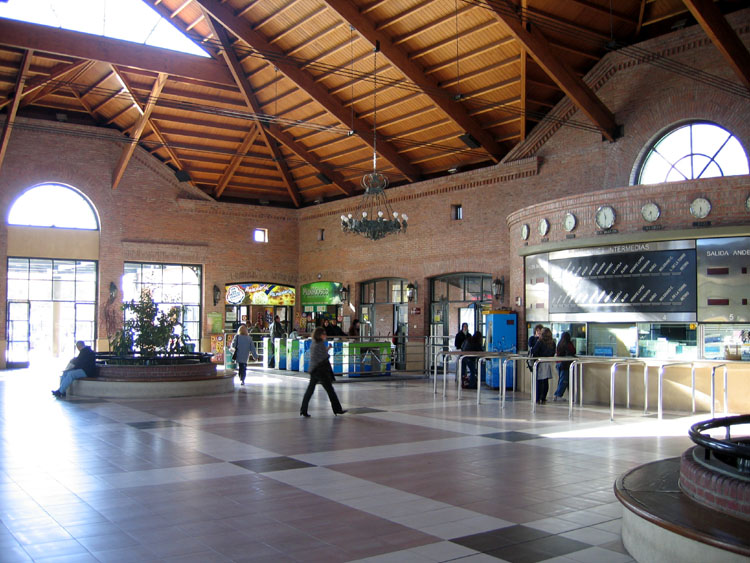
 Just outside we saw this old British phone booth in Tigre. There are two main telecom
companies in Argentina these days, Telecom Argentina and Telefónica de Argentina.
Telecom Argentina has a wireless group that is called Personal and its logo is
everywhere, even on government signs. We thought it was a ministry of the government!
Just outside we saw this old British phone booth in Tigre. There are two main telecom
companies in Argentina these days, Telecom Argentina and Telefónica de Argentina.
Telecom Argentina has a wireless group that is called Personal and its logo is
everywhere, even on government signs. We thought it was a ministry of the government!
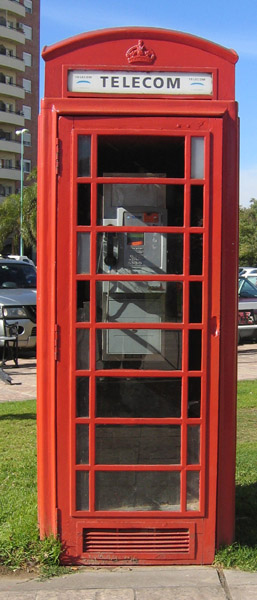
We began a very short walk into downtown Tigre. Police officers in Tigre road on ATVs!
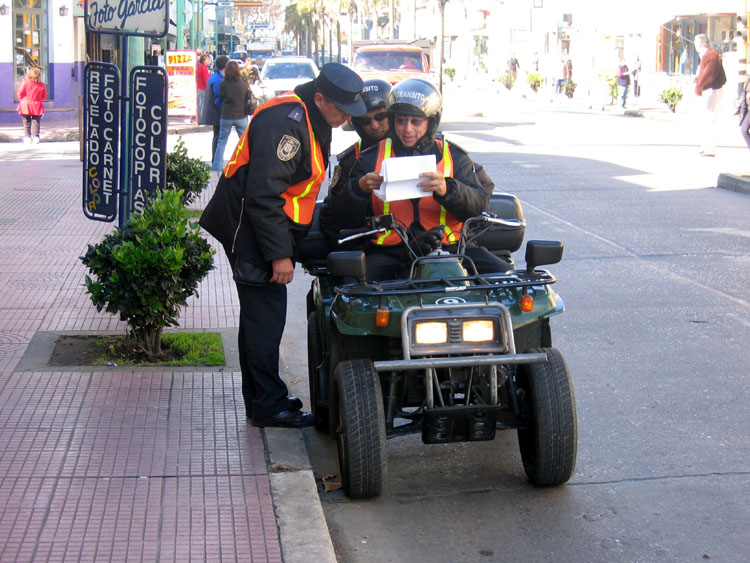
The real highlight of Tigre is the Río Tigre, a river and delta area that flows into the large River Plate a few miles away. Here is a nice wooden cruise boat turning around in the river. A variety of river cruises are offered, but we did not go on one as they are at least three hours long. Next time!
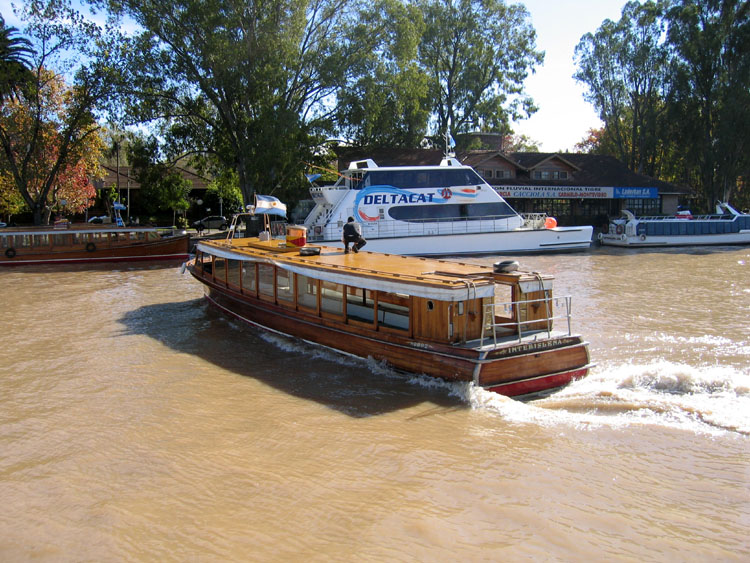
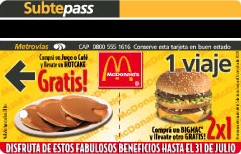
Tigre has a McDonalds right near the river.
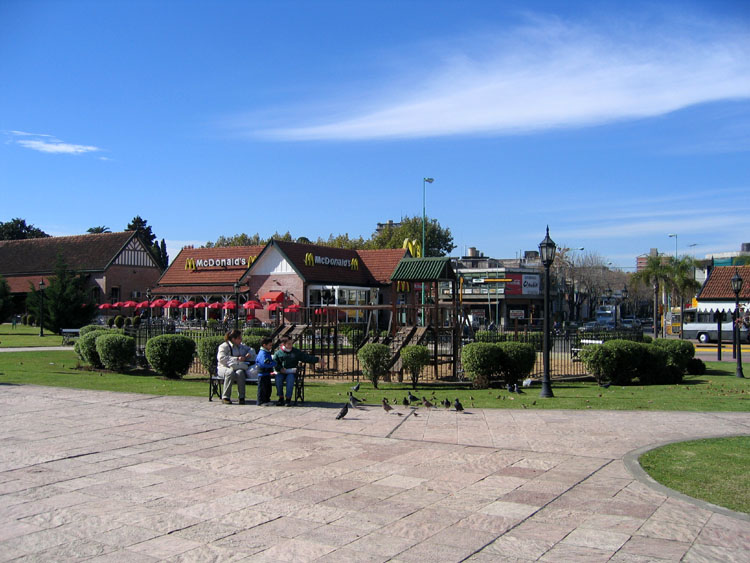
The McDonalds menu is shorter than in the US.
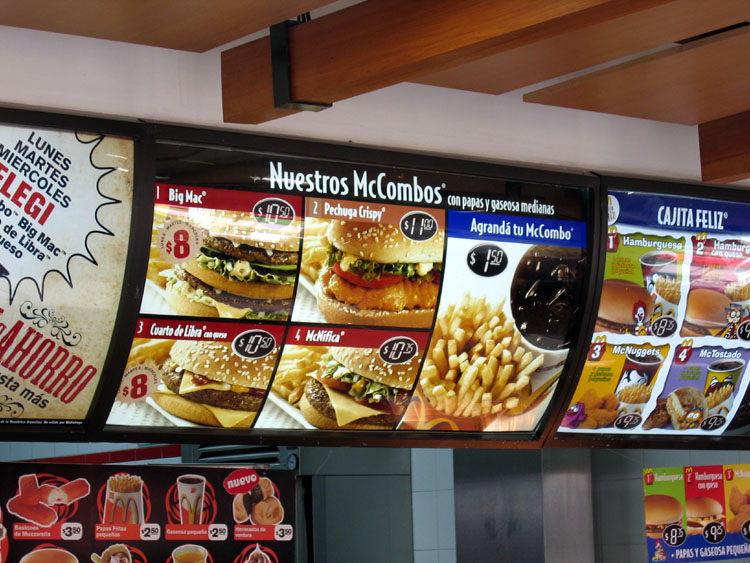
A young family at a train station returning from Tigre.

A young mother waits for a train.
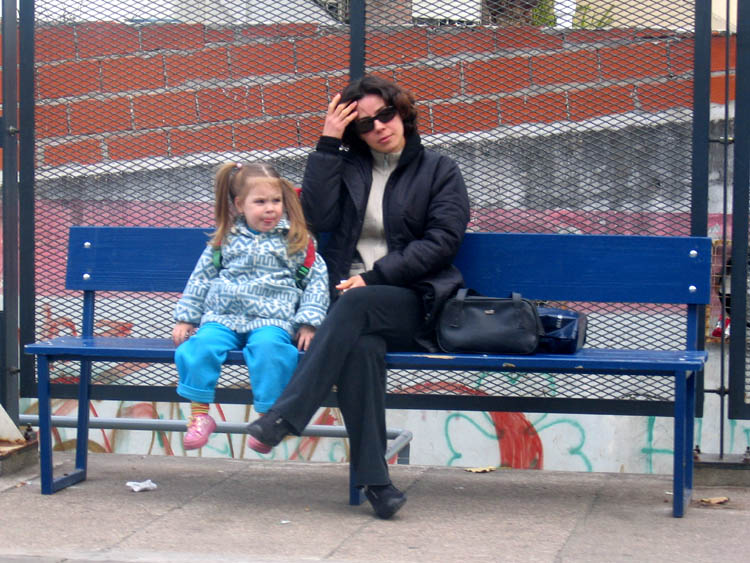
Returning to Buenos Aires the skyscrapers reappear.
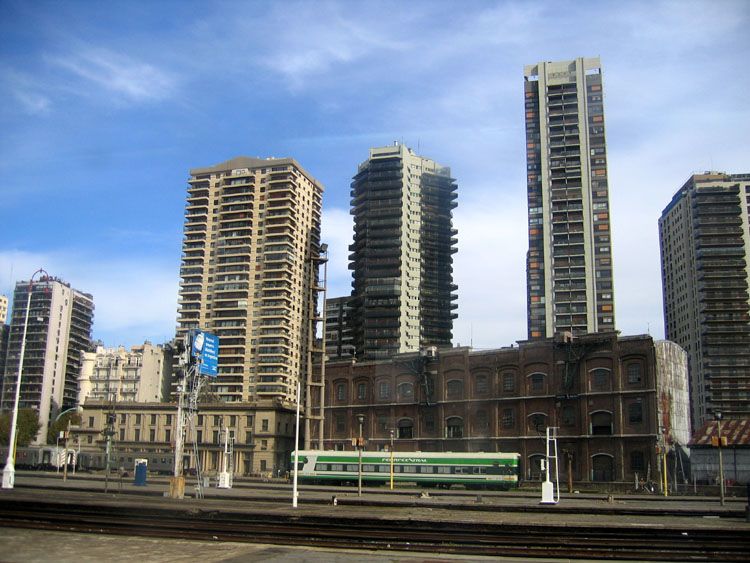
The train terminal back in downtown BA reminds me of the train stations of London and Munich.
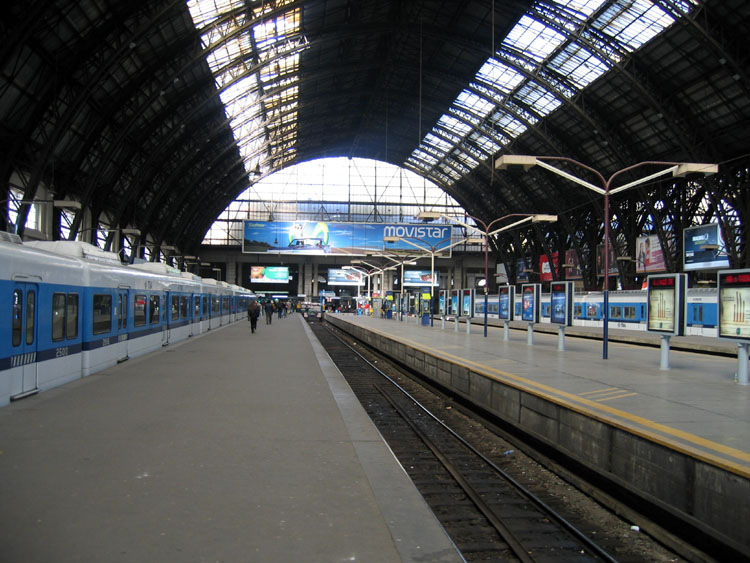
Magazine stands are so colorful! The candy bar selection is quite different from the US.
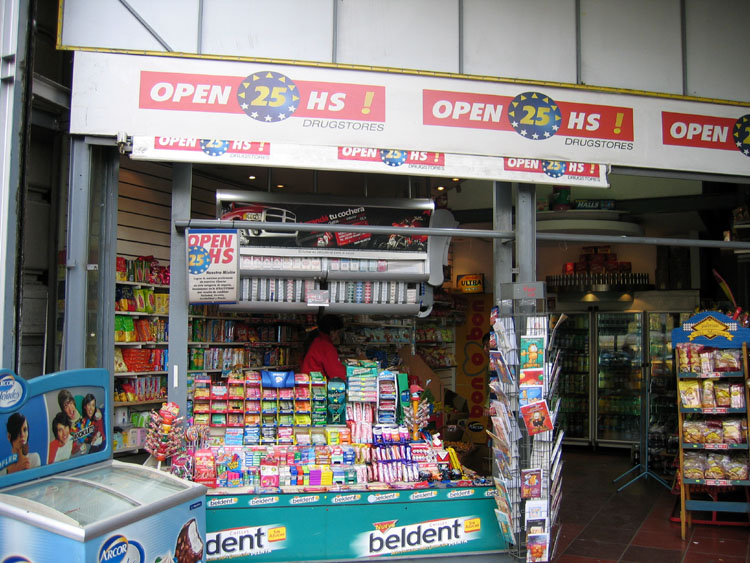
Western companies Sun, IBM, and around the corner, Microsoft are all present.

Pepsi was served in glass bottles at nice bistros. The dark sauce is just one variation of chimichurri. The sauce sometimes is black, sometimes green, but no matter the color, it is present (like ketchup in the US) everywhere. It is great with grilled meats or on bread.
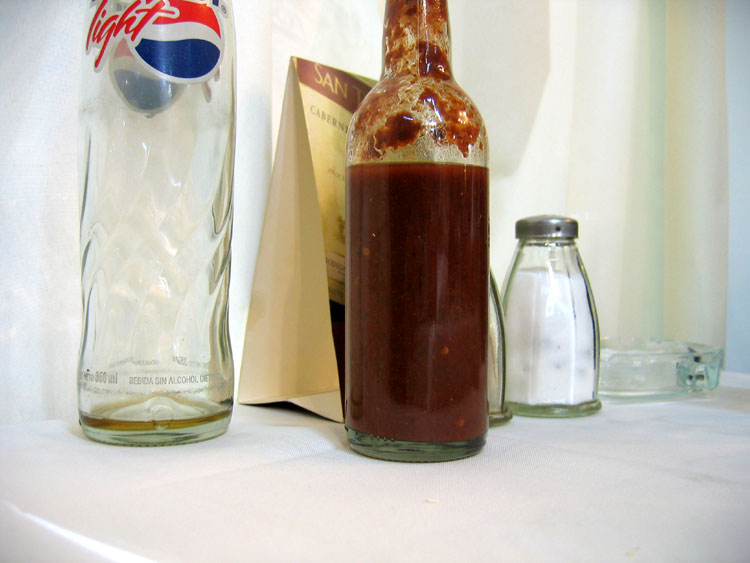
Here we are at dinner that night at El Establo, at the corner of San Martín and Paraguay Streets just a few blocks from our hotel. We ended up eating here 3 times during the trip.
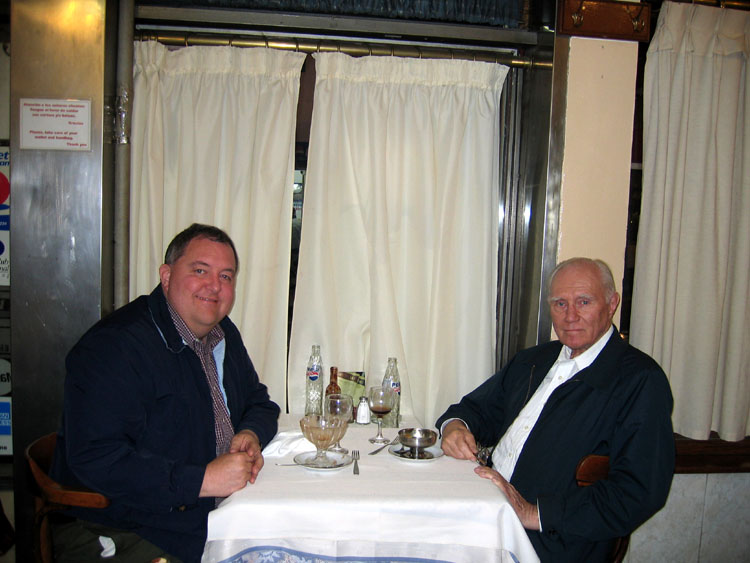
Walking home from El Establo at night would bring us up Avenida Florida which is brightly lit. There were many clothes stores, book stores, and cafes along this street.
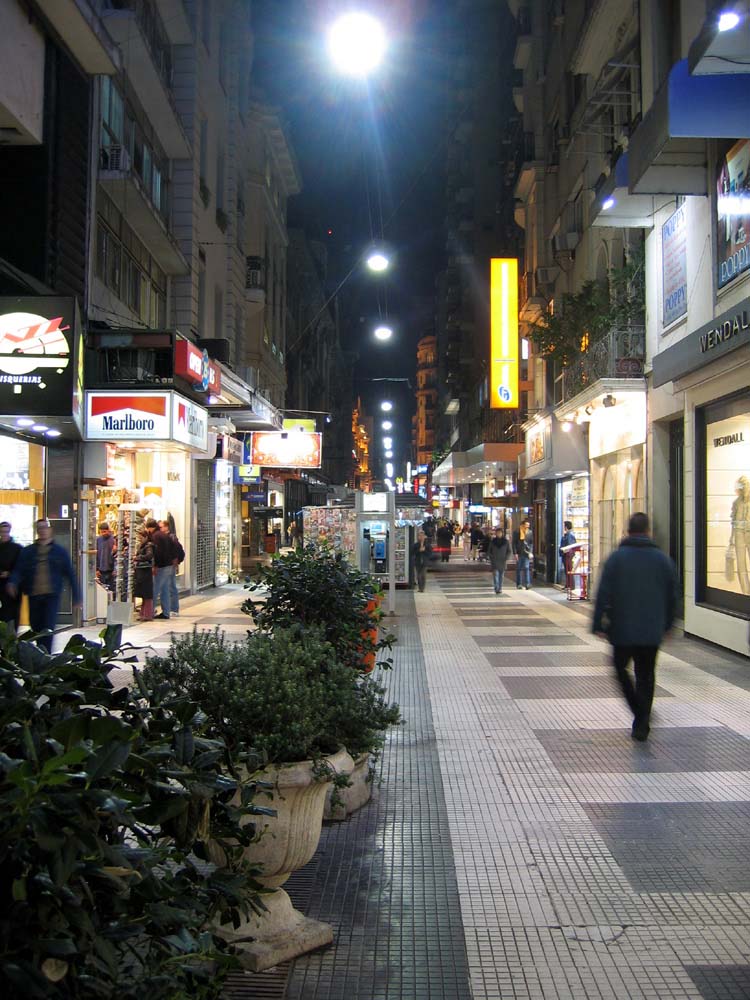

Our excursion today was to meet up with a family that Dad knew in Buenos Aires 50 years earlier, the Pitarch family. There was a baptism in their family on this occasion, so we caught a cab and went there. Here are Dad and I with the Pitarch family after the baptism. The younger two men to the right are two of the sons of the couple in the middle. On the right is Guillermo and next to him is Roberto. None of these people spoke much English. Dad rattled on in Spanish and I ate refreshments!
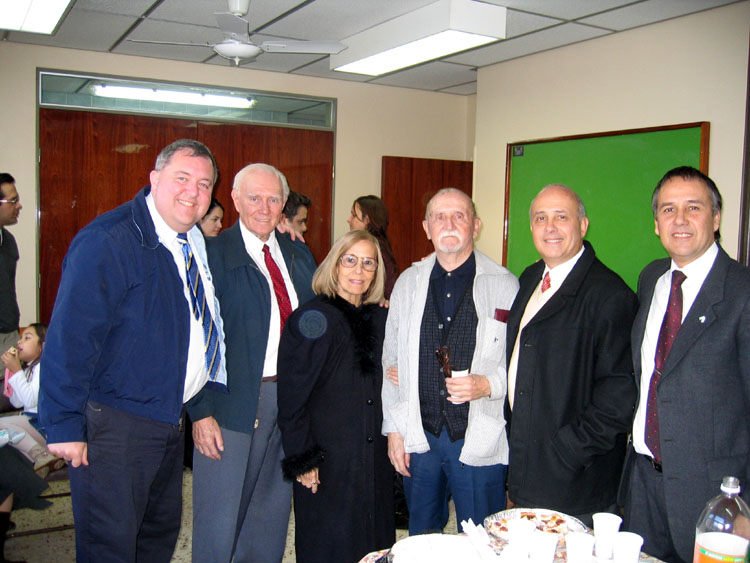
This is Roberto Pitarch in his Volkswagen Bora Trendline TDI (our Jetta GLS TDI). He runs a company (X-Solutions) that does armor-plating of cars, to make them more secure for politicians and CEOs. A Volkswagen Bora TDI is considered a very high-end executive car in Argentina. Any non-Argentine made car has a 50% tax on it in Argentina. Many car companies are thus building plants in Argentina so their cars can be more competitively priced.
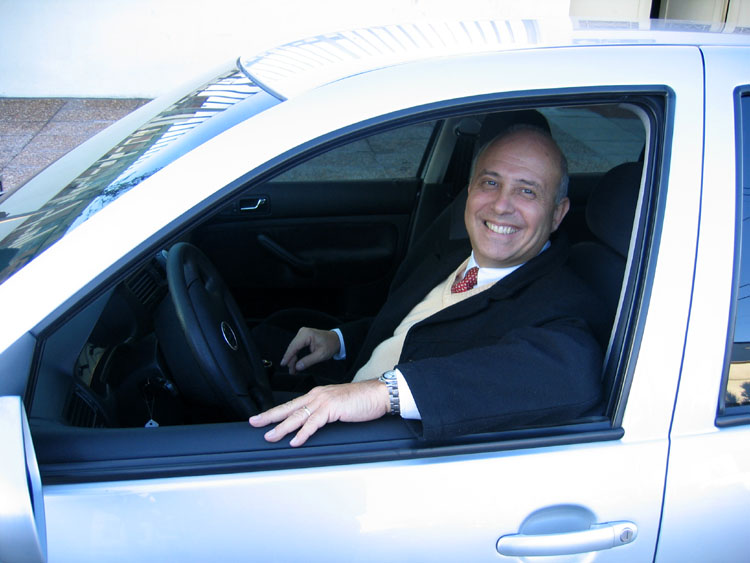
After the baptism we got a tour of BA. Here my father is at the oldest LDS meetinghouse in South America in Liniers, a suburb of BA. (S34°38.886' W58°31.316')
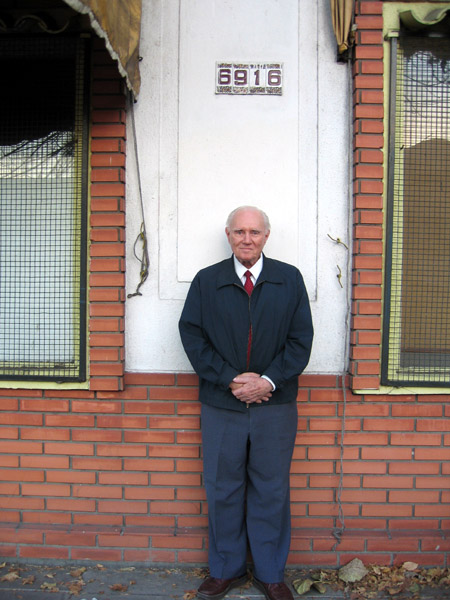
6916 Tonelero is the address of the oldest meetinghouse, where DRA used to live in the 1950s. Here DRA is with Martín Ríos, who manages the operations of the Argentine MTC for the LDS Church. Martín married Verónica Pitarch, daughter of Roberto Pitarch. Martín & Verónica are the ones that gave us the tour which ended in their taking us back to our hotel. They both spoke English well (they both have lived in Salt Lake city for several years apiece although they grew up together in BA), and I really enjoyed visiting with them. They were so kind to spend the evening with us.
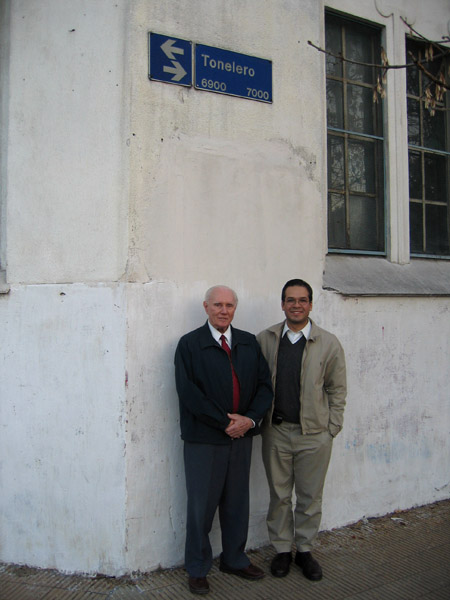
One of Martín & Verónica's girls in the back seat of their Kia Carnival...
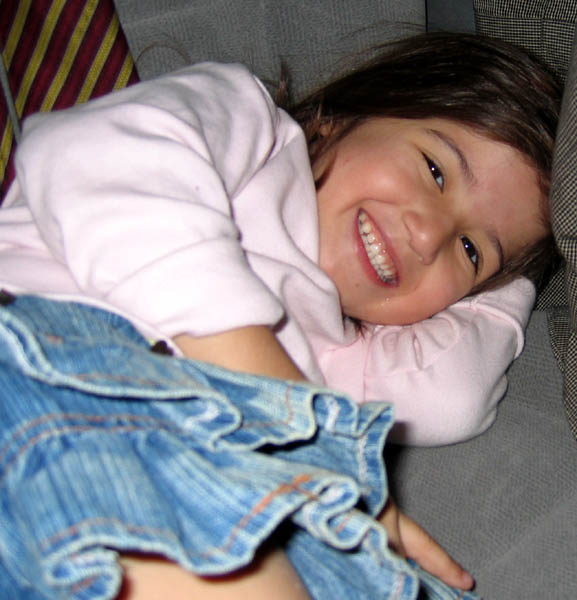
Argentine leather products in a store window that night coming back from El Establo again.
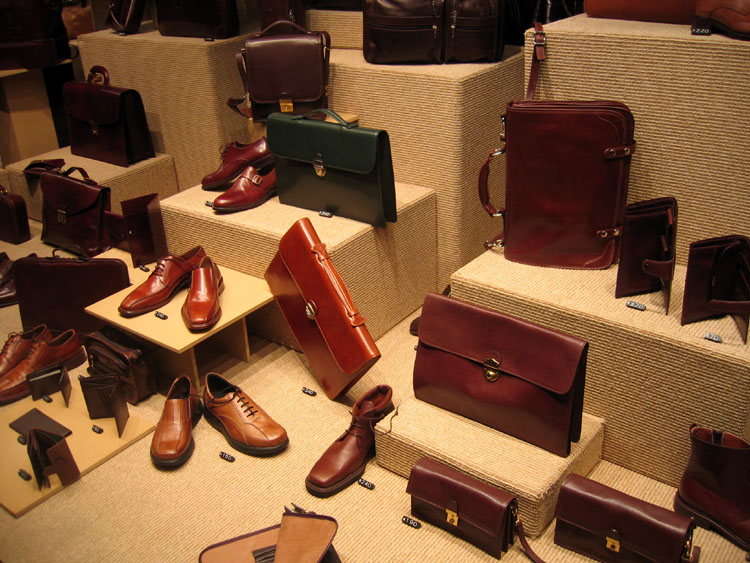
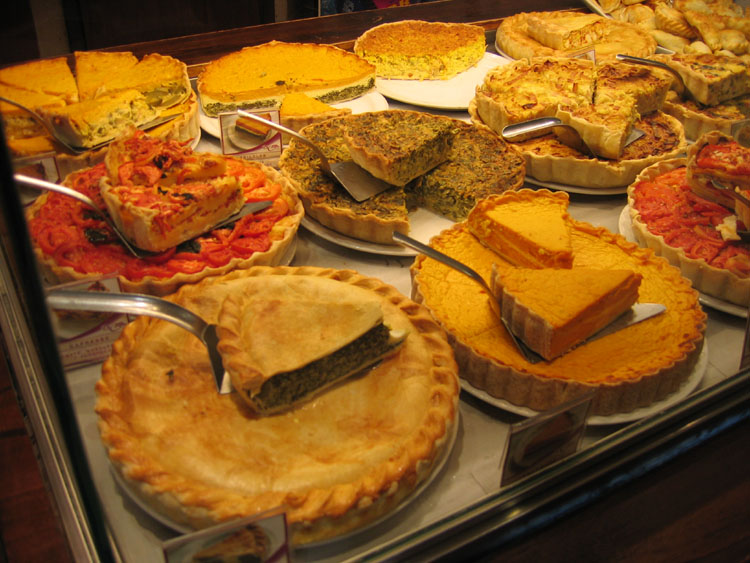
Three dollars will buy you a fabulously healthy lunch, and very tasty too.
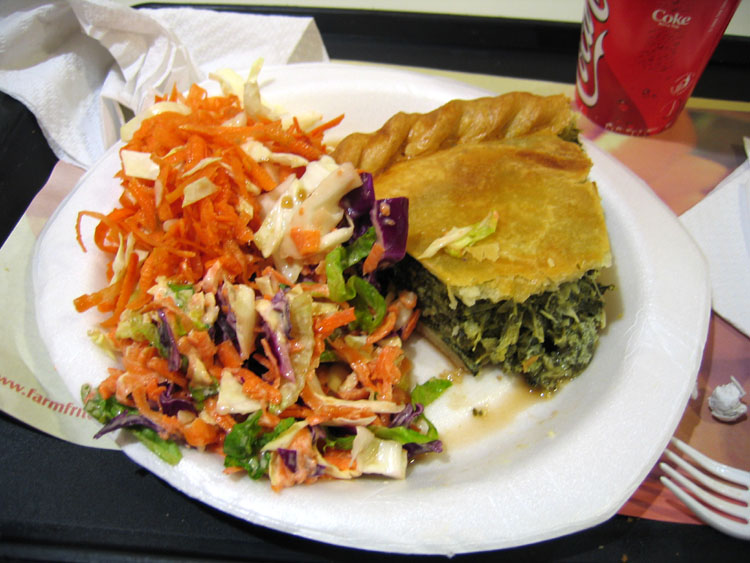
European and US products abound here inside the Galería Pacífico.
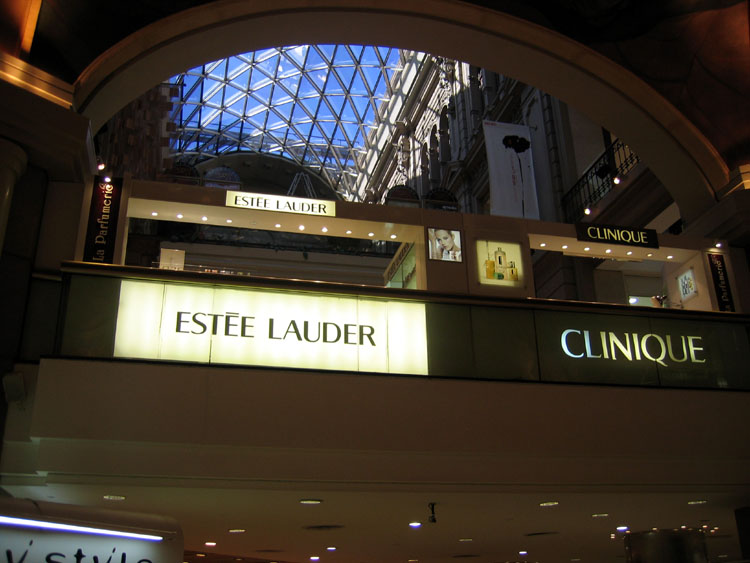
Computer books at an Argentine bookstore called Capítulodos. Many titles are in English, especially for computers, but occasionally throughout the store. Finding a good reference book is hard, like a simple dictionary or atlas. They love novels and picture books.
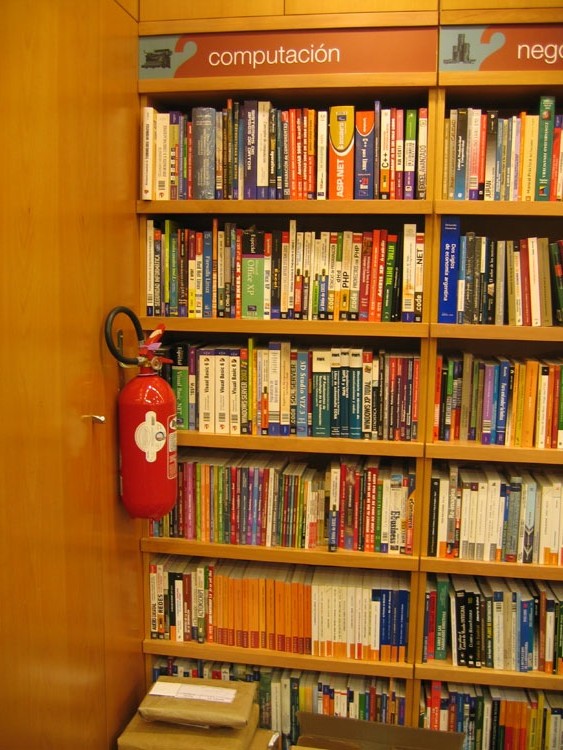
Even in downtown BA there are police men on ATVs. Other than our walk to lunch, we just stayed home at the hotel and rested most of Sunday.
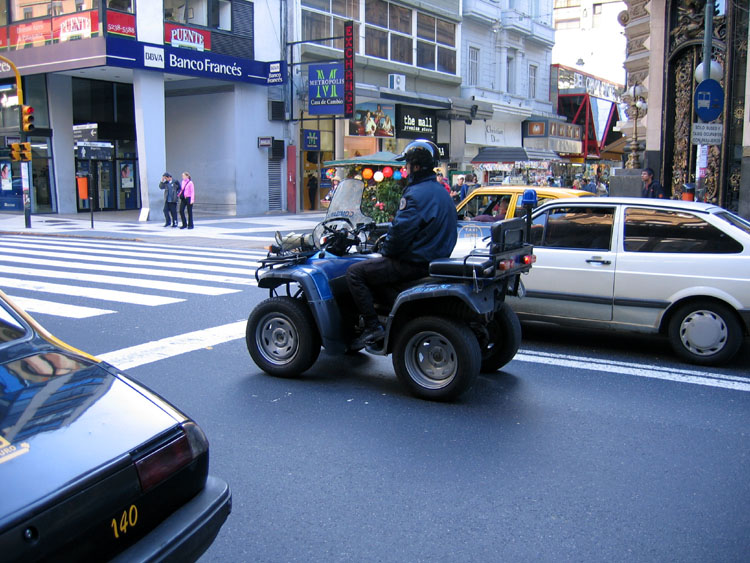
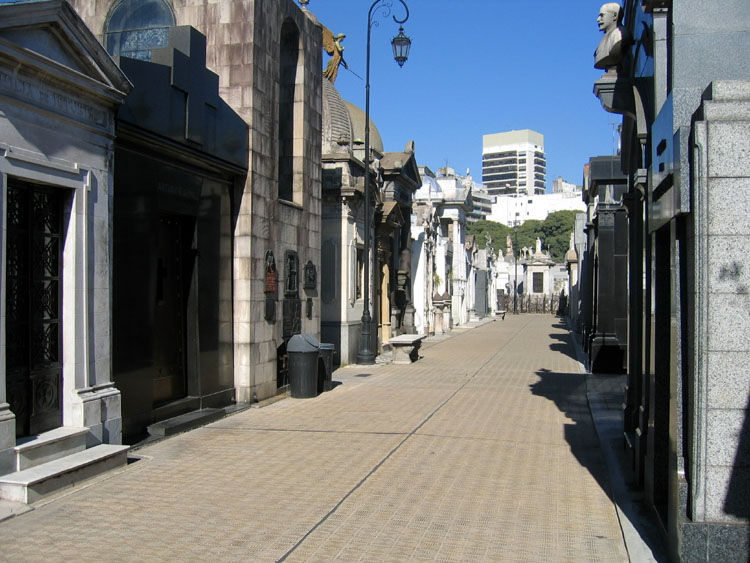
Eva or Evita Perón is buried here, in her family crypt. We were one of several groups that came to see this special place. Evá Peron was First Lady of Argentina from 1946 until 1952.
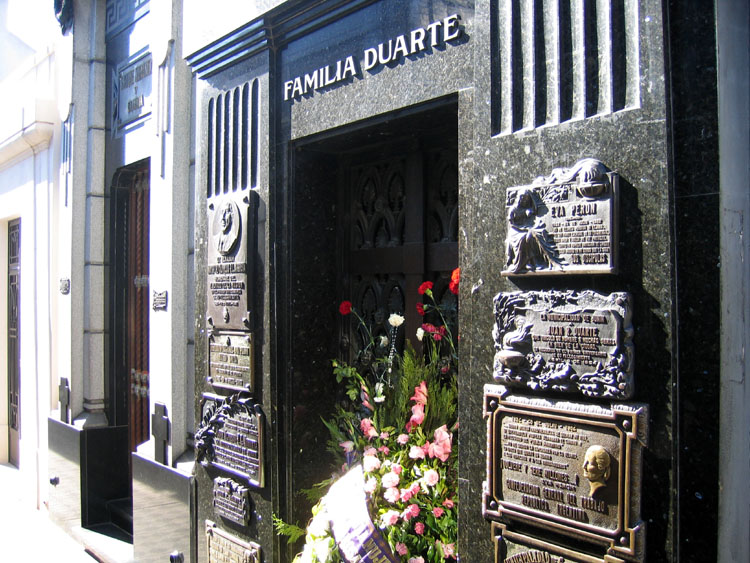
Here is our taxi driver waiting for us in a Renault Kangoo with enhanced headroom. These are made in Córdoba, Argentina and sell for about US$14K. There are delivery van versions also. The streets have a lot of these vehicles.
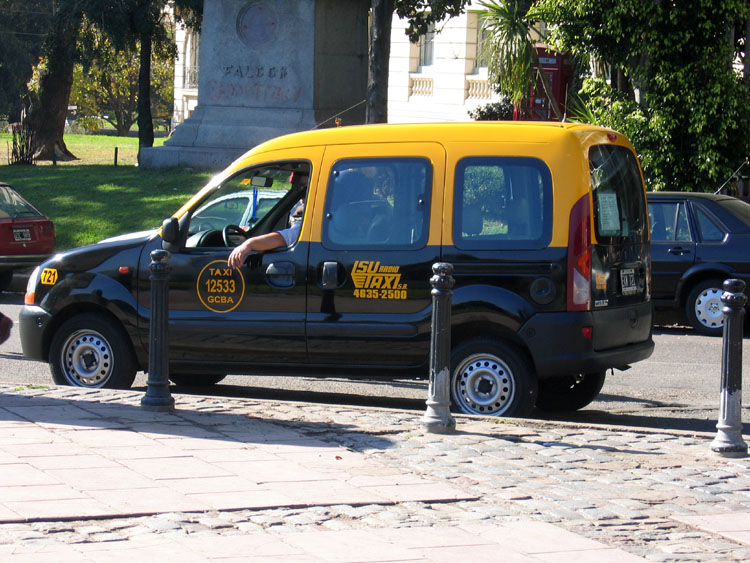
See how much headroom there is? After we toured the cemetary while the taxi waited for us, we then had him take us to the largest shopping center in South America. This took us on the main freeway, which is impressive: six lanes each way, along with another three lanes each way. They have the two six lanes sections in the middle, with the three lane sections on the outside for local traffic. Every so often there are places to get into the main six lane section or off onto the local three lane section. So their highway is actually nine lanes wide in each direction! (You can see it with Google Earth at longitude -58.50819297361163, latitude -34.52698326553669.)
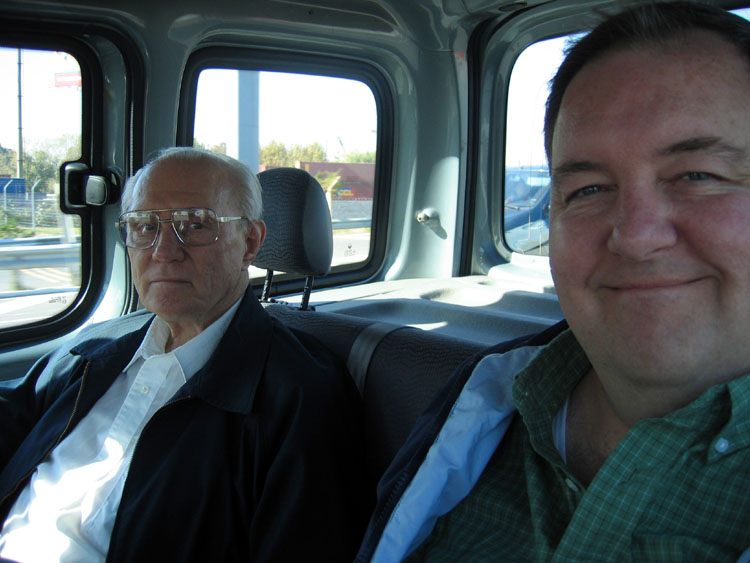
The Río de la Plata, or River Plate. It is up to 136 miles wide. Buenos Aires is built on the edge of this large river. On the other side of the river to the north is Uruguay.
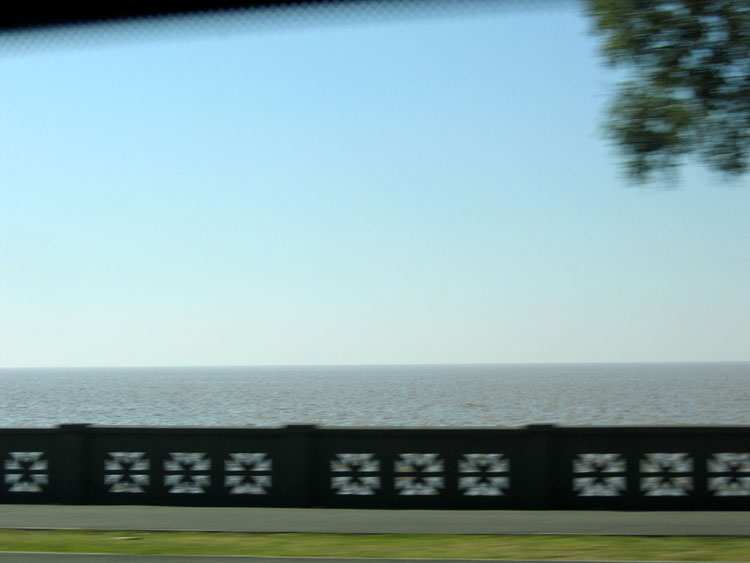
The only new iPod for sale I saw in all of Buenos Aires — and I checked for them at many different places — was an older U2 unit for approximately $800 US dollars! Apple Computer has virtually no presence in Argentina.
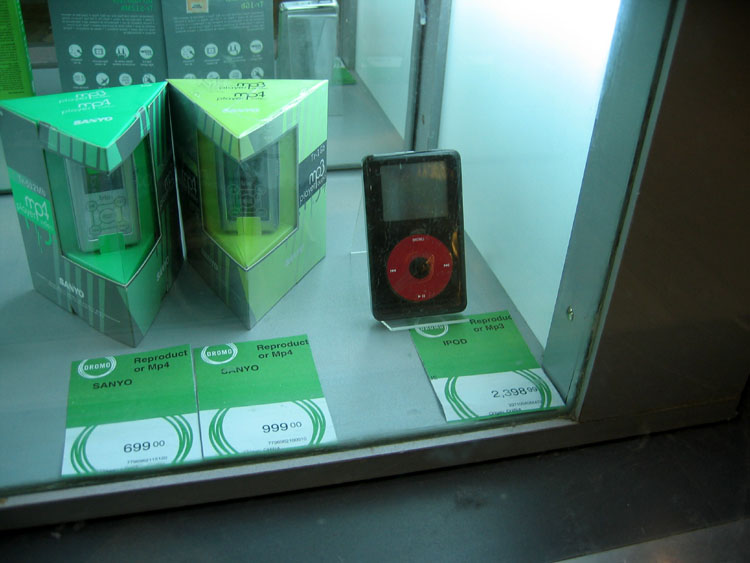
 The inside of the huge
Unicenter mall ten miles from downtown. It is claimed to be the largest mall in South America.
It was very nice, with the largest food court I have ever seen. Dad stopped at the post office here,
which is called Correo Argentino.
(S34°30.5' W58°31.5')
The inside of the huge
Unicenter mall ten miles from downtown. It is claimed to be the largest mall in South America.
It was very nice, with the largest food court I have ever seen. Dad stopped at the post office here,
which is called Correo Argentino.
(S34°30.5' W58°31.5')
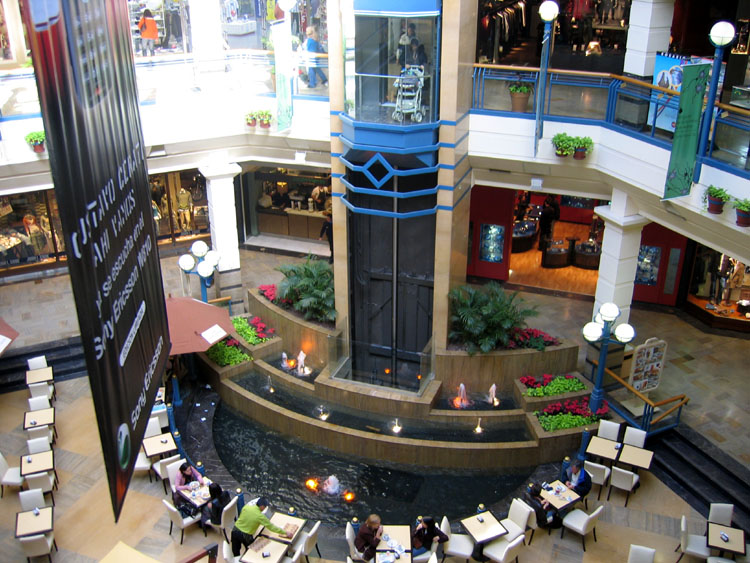
An electronics store in the Unicenter that had books, CDs, DVDs, computers, etc. This had one old Apple eMac for sale that looked like it had been there a long time.
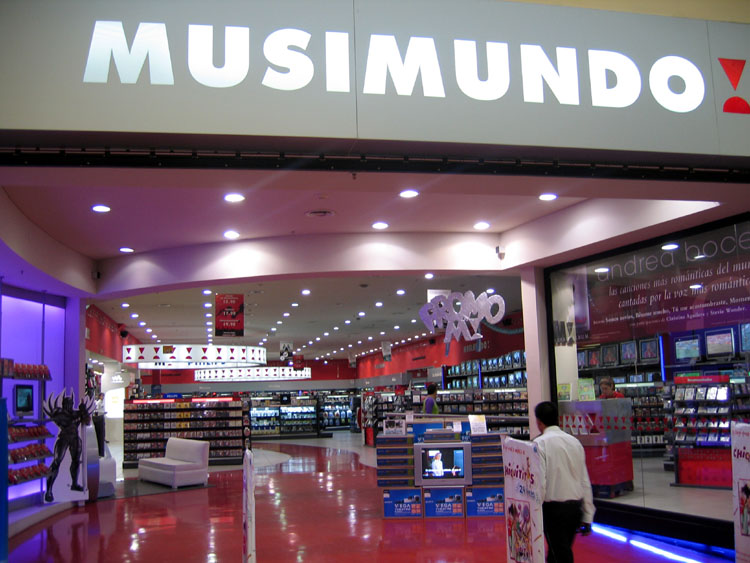
Dad and I waiting for our cab to return. A remís is a cab that is rented for a fixed price. Often a cab will act as a cab and a remís throughout the day, depending upon what you ask for.
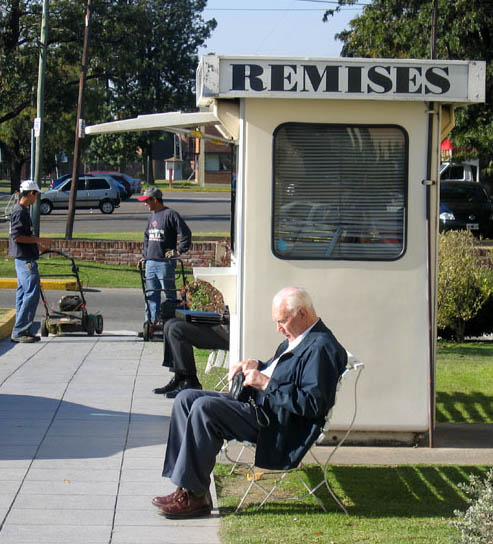
A Volkswagen Crossfox. This car is made in Brazil for South America. A neat little vehicle, it has a gas engine and gets 40 MPG with a little extra ground clearance. It sells for about US$15K.
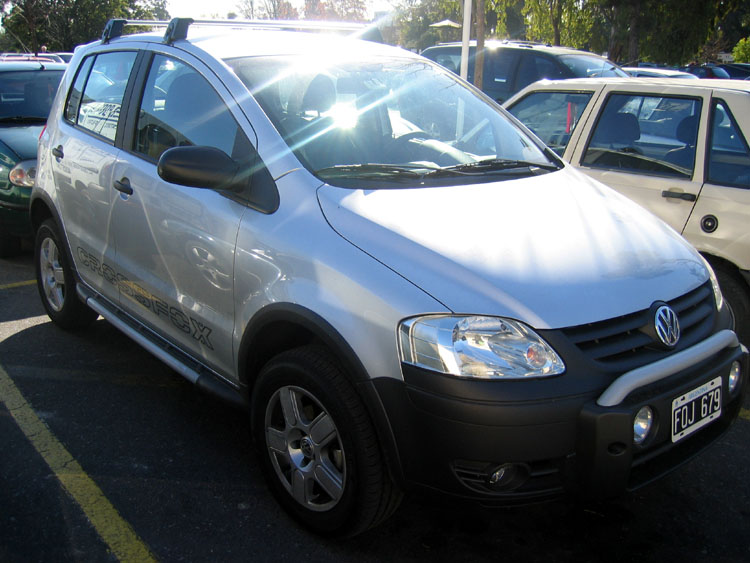
This day, after breakfast, we were to go on a trip out into the pampas, the Argentine plains country. A small Mercedes diesel Sprinter bus picked us up right at our hotel lobby.
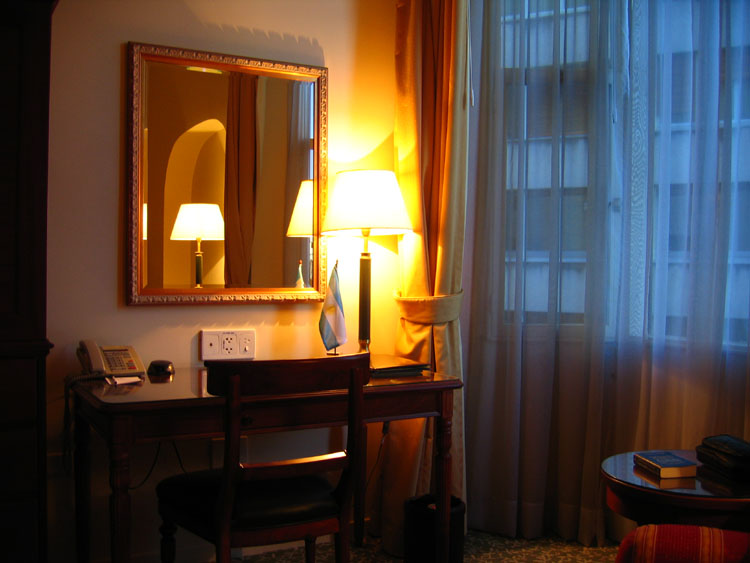
We traveled through the downtown and onto the freeway and out past all of Buenos Aires. We drove about 100 km to the town of San Antonio de Areco. This was a small, old country town where gauchos still live. As soon as we got out at the main square a Citroen 2CV caught my eye. I mentioned it to the tour guide and she informed me that the rear side windows indicate that it is a 3CV. I asked her how she knew this and she said that her father taught her the difference. Impressive!
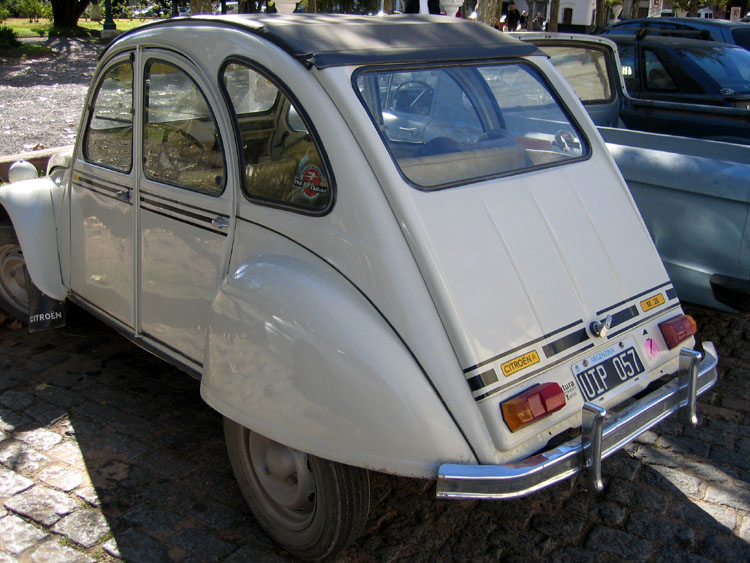
This church in San Antonio de Areco is called Parroquia San Antonio de Padua. It was built in 1730.
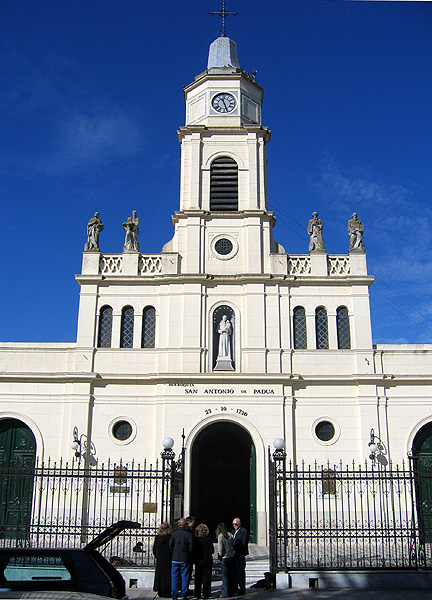
The sleeping dogs of San Antonio de Areco.
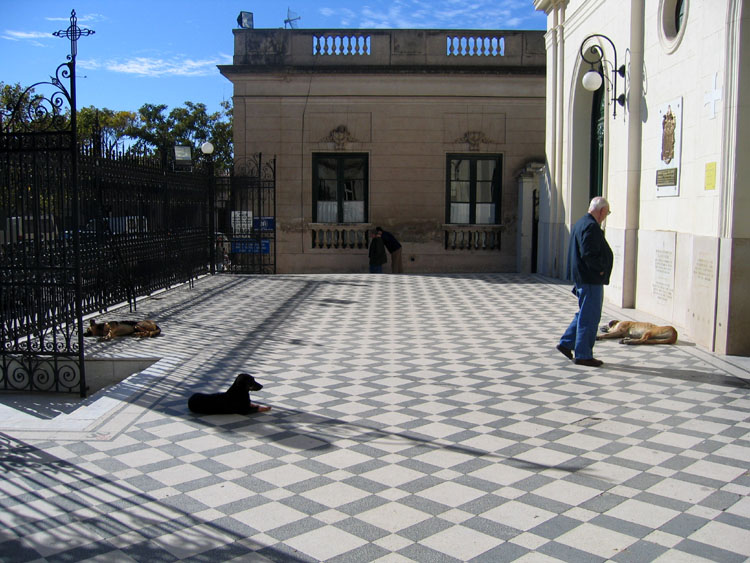
A wall in San Antonio de Areco at a silversmith shop we visited.
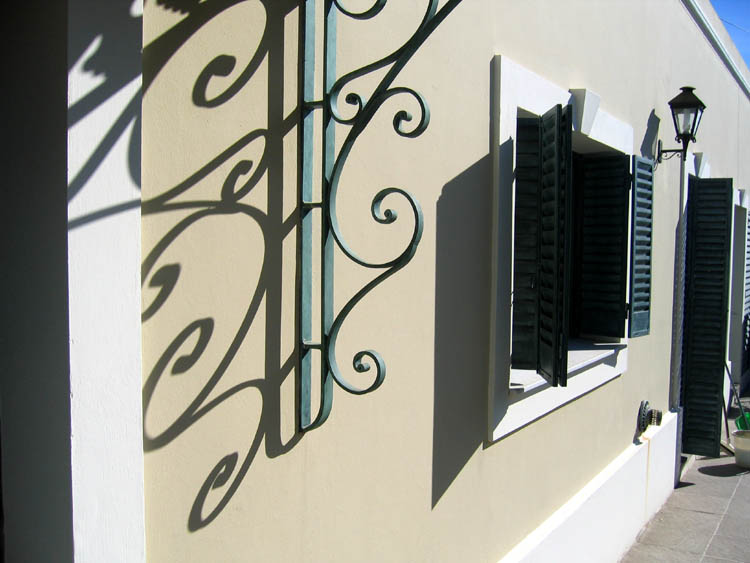
After visiting the downtown sites of San Antonio de Areco, we drove to a ranch at the outskirts of town. Another Citroen 3CV greeted us there at La Cinacina Estancia.
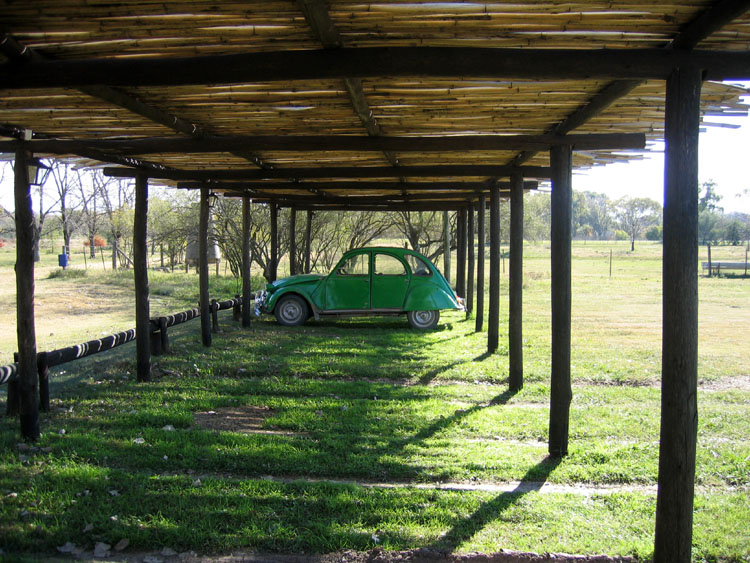
We were welcomed with hot empanadas at La Cinacina Estancia. Yummy! Our tour guide is to the right and she was terrific. Her name is Julieta Lagache and she works with Friendlyvisit.
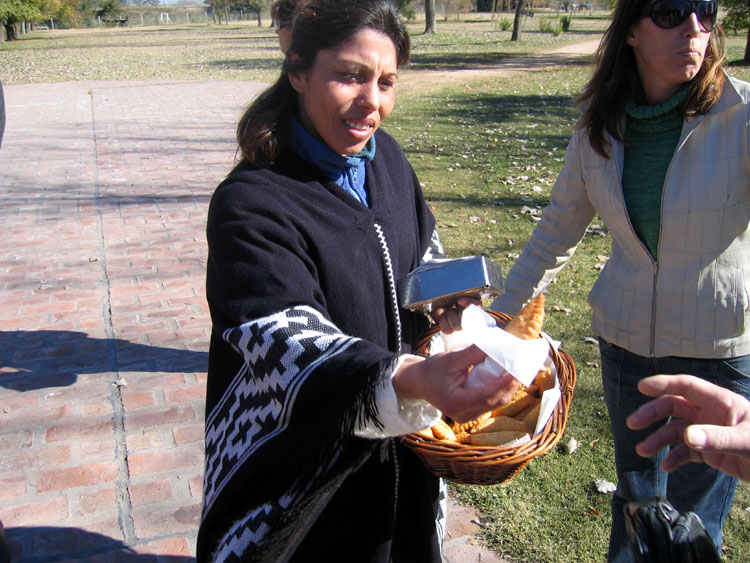
The entertainment at La Cinacina Estancia was very enjoyable. It was a band of 4 men, and a young couple danced to the music. (I bought a CD of their music and also took a movie of them.)
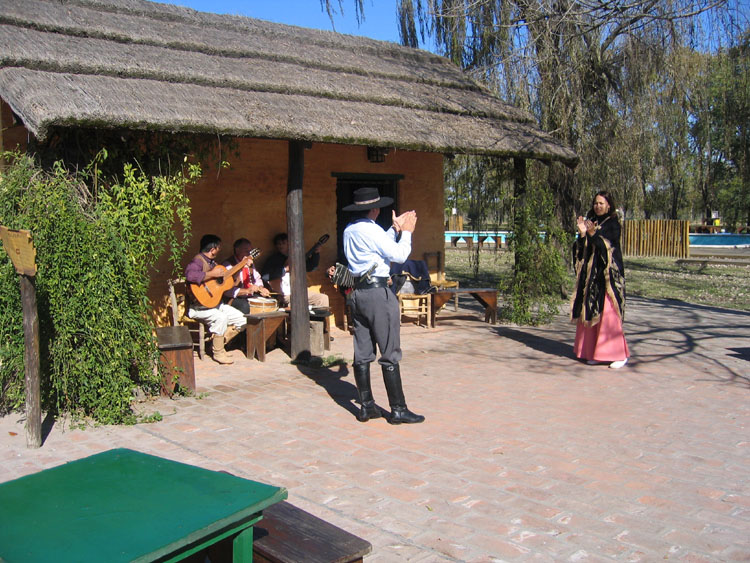
Here is lunch cooking: beef. Lots of beef. Americans ate an average 88 pounds of beef in 2006. Argentines? 121 pounds in 2006, 145 pounds in 1994. They love their beef!
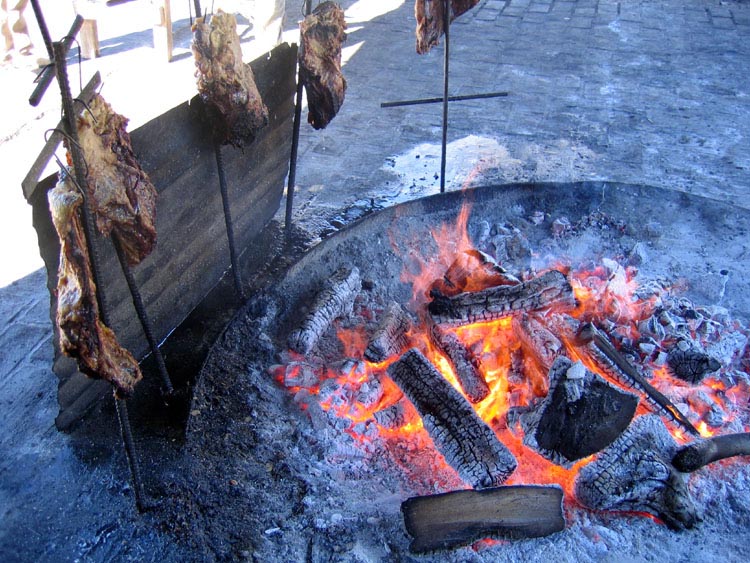
We had some time to wander the large ranch before lunch. There was a raised tower that we climbed and here is part of what we saw: the pampas.
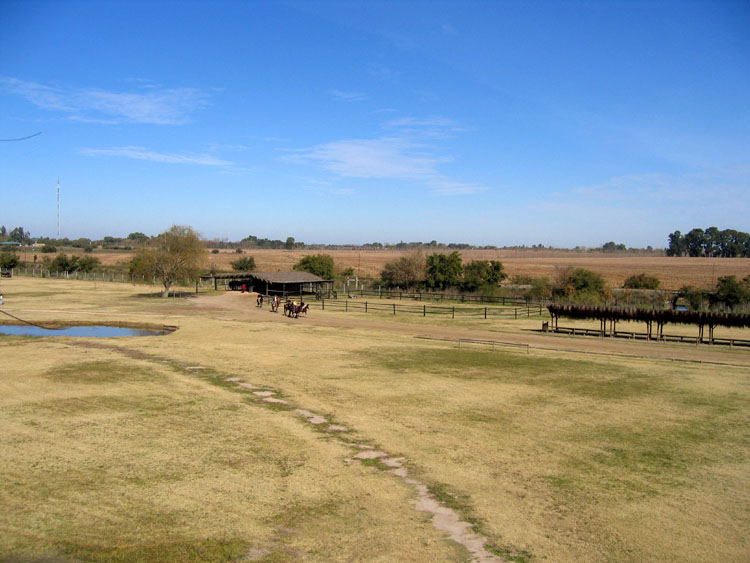
DRA at the top of the raised tower.
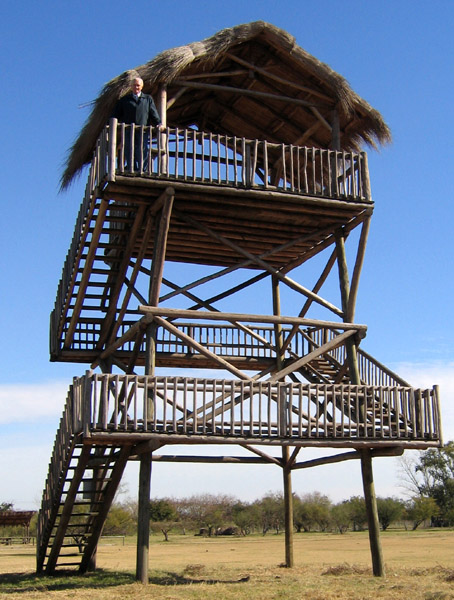
There was an unusual horse competition. Riders would try to place a small stick through a woman's ring that hung from a rope across the track. They would ride very quickly towards the dangling rings and on a few occasions, they did it! I have no idea how they could. It was very impressive.

Fall colors in May! It was very peaceful and tranquil on the ranch, and not too hot or cold. It seemed like the perfect time to visit.
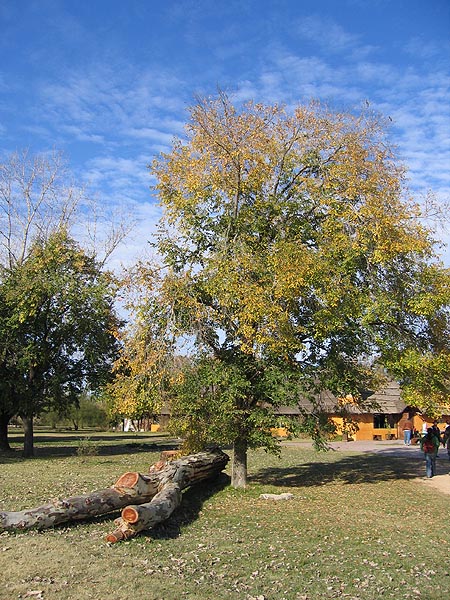
This interesting Florencio Molina Campos artwork in tile of the threading of the ring competition is on the side of the main eating pavilion.
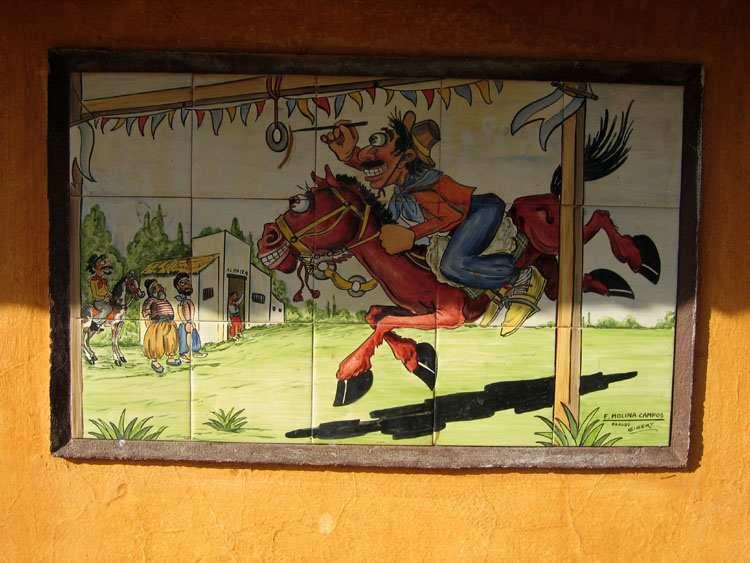
They served us a nice lunch feast inside this building, with plate after plate of meat. Their breads, salads, and other side dishes were even better than the meat in my opinion. Notice the thatched roof, and the Molina Campos tile work. We really had a great trip to San Antonio de Areco.
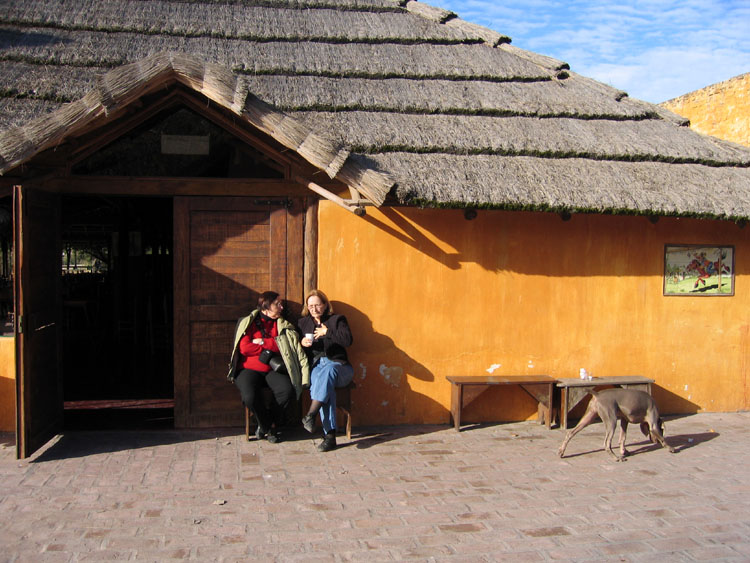
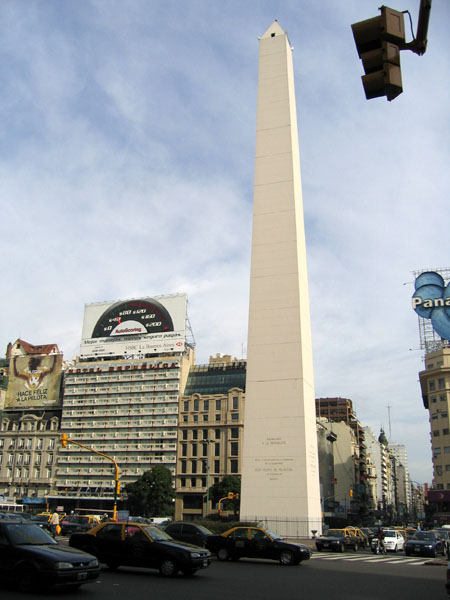
On the 9 de Julio there are seven lanes in each direction. You can only cross half of the road on a single light and then you must wait for another light to cross the remaining distance. The 9 de Julio is 460 feet wide! It is very impressive. (The silver hatchback is a Mercedes A-Class!)
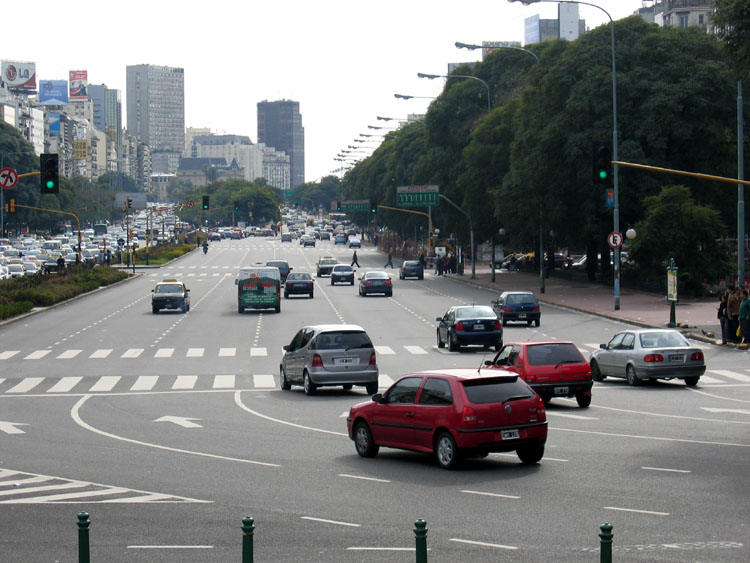
My cousin Stephen R. Covey apparently is popular there too! This was in a bookstore on Avenida Florida.
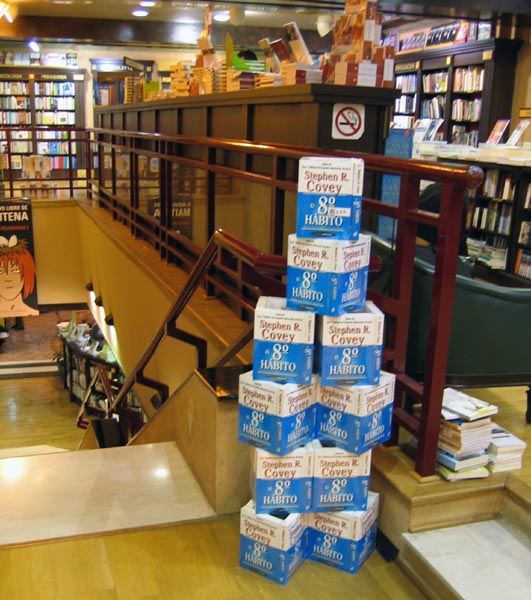
This was the only Mercedes E320 CDI that I saw while I was there. It is the same generation as mine. They are twice as expensive there as it is here in the US - about $120,000 US. Everything is pushed down a notch there: a VW Jetta is an executive's car, and an E-Class is for the very rich, while an S-Class is only used by the highest government officials.
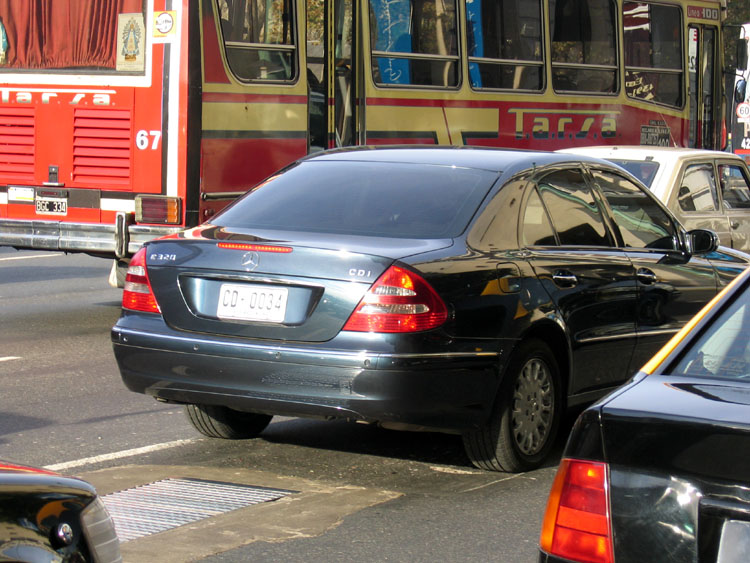
An interesting older Mercedes van/bus. I saw this on a solo jaunt looking for a grocery store to browse. While I was out and about I was interviewed by a woman for a radio show on what I thought about Argentine politics. It was pretty funny because her English was not so good, and my Spanish was not so good, so we gave up because we really could not communicate! She gave me an Argentine flag to keep anyway. The people there were very nice.
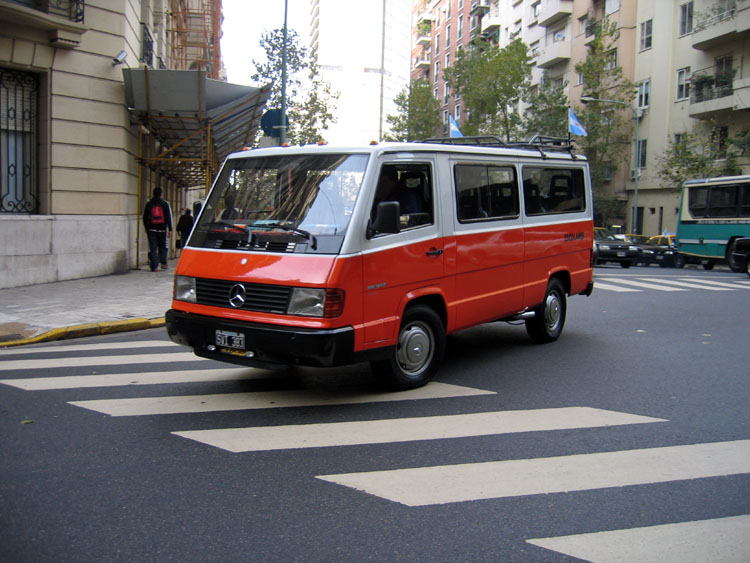
Wonderful bread is everywhere. This is a nice supermarket in a fancy part of town, but it is much smaller than US supermarkets. I saw a woman dancing in the aisles to the Beatles music playing in the store! Older US pop music was very big in Argentina, especially music from the 60s, 70s, and early 80s.
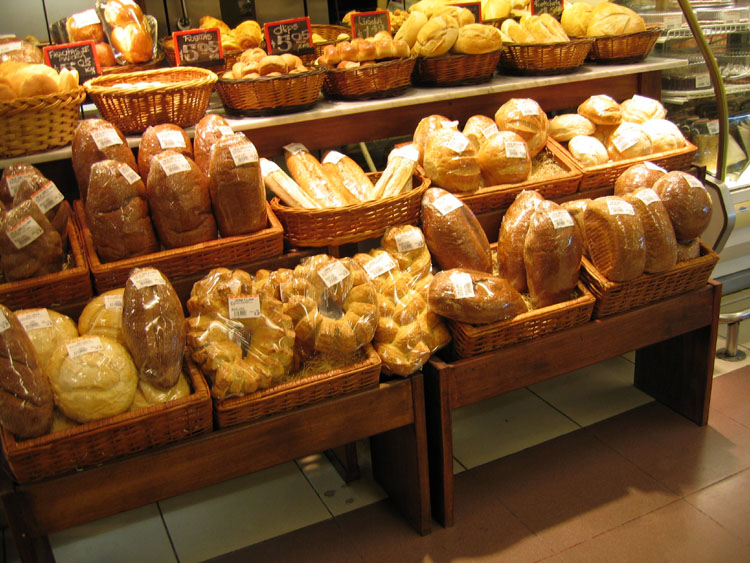
 This is our Marriott Plaza hotel on the way back from my supermarket trip. This logo —
gobBsAs — is all around downtown and stands for
Información y servicios del Gobierno de la Ciudad, or city information. It is what we
thought the Personal signs all meant.
This is our Marriott Plaza hotel on the way back from my supermarket trip. This logo —
gobBsAs — is all around downtown and stands for
Información y servicios del Gobierno de la Ciudad, or city information. It is what we
thought the Personal signs all meant.
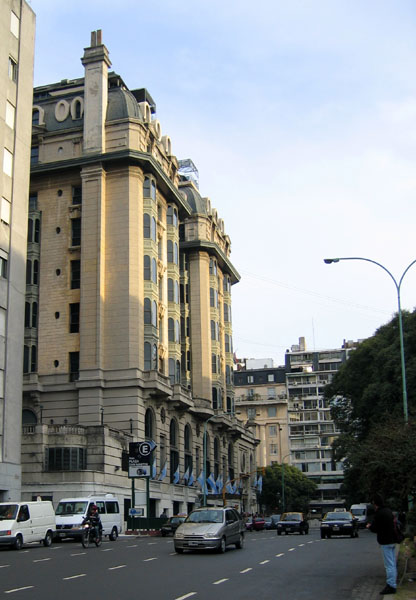
We went to dinner at Di Caprios for the last time. We saw these three men at the mall. Notice how they are always so nicely dressed! If you go to Argentina, take nice leather shoes and wear nice clothes. The only people wearing jeans are a few of the youth.
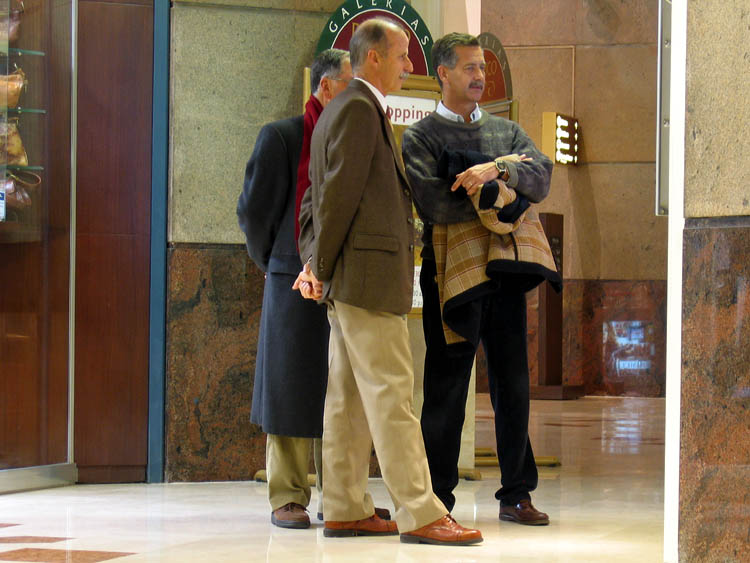
One night I was sitting here and a lot of music was coming from around the corner and I poked my head in and saw a party for someone's 50th anniversary, or somethng like that, and everyone was doing Viennese waltzes. Everyone was dressed up in beautiful clothes. I felt like I was in Vienna and the year was 1900. (The hotel was opened in 1909.) That was a magical evening.
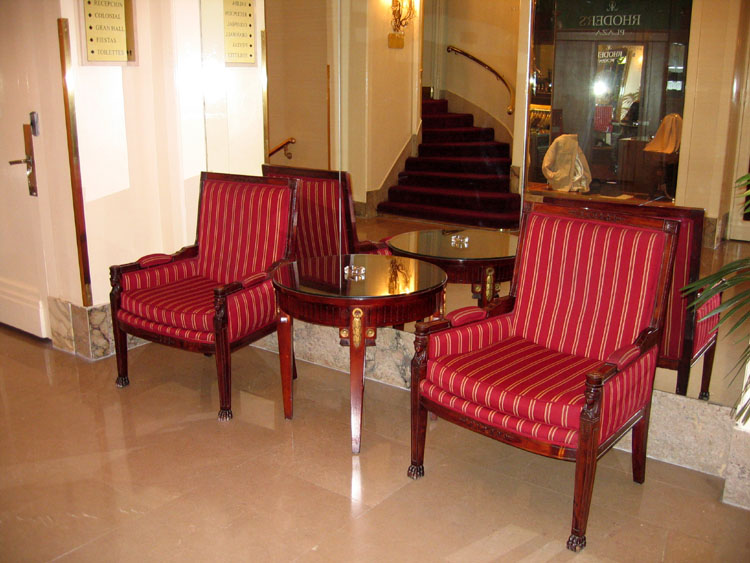
A painting in the hotel waiting room where we would sit, so I could get on the internet!
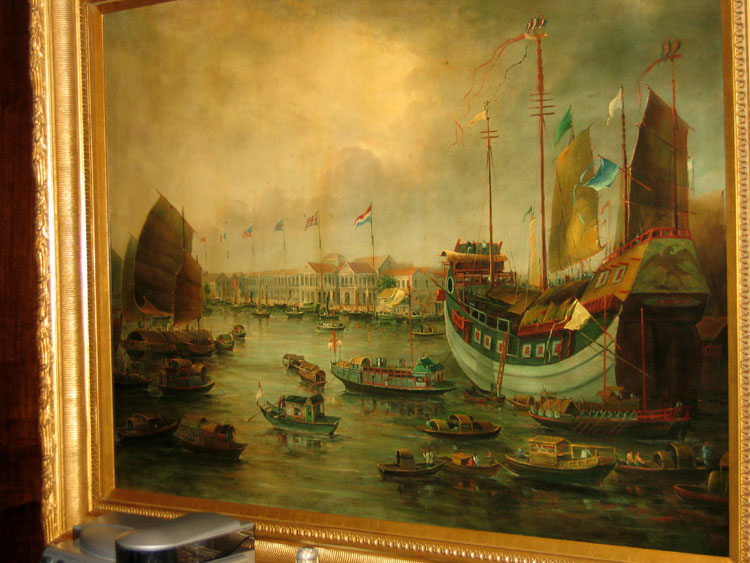
As we drove to the airport we had our driver take us past the LDS Buenos Aires temple. (S34°43.756' W58°31.109')
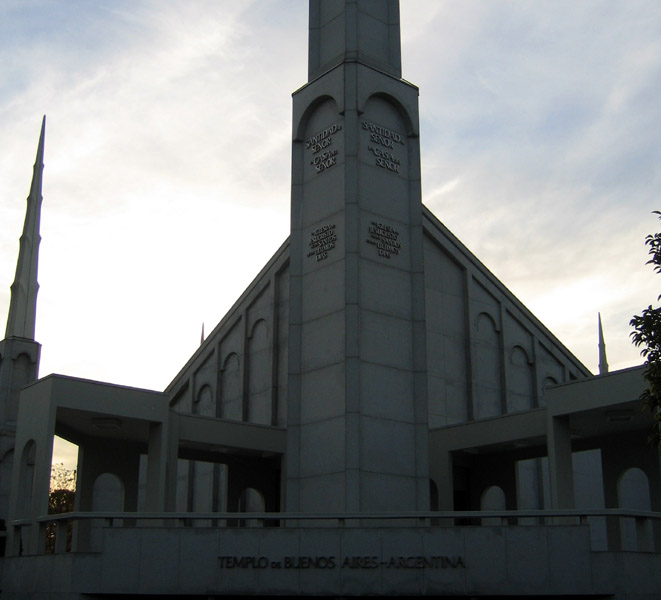
Then on to the Ministro Pistarini Airport, the main Buenos Aires airport. (S34°48'48" W58°32'25") Somewhere along the way my father realized that it was exactly 50 years earlier, to the day, that he had left Argentina the first time. Interestingly enough, it was on this day, May 25th, that Argentina became a country in 1810. There were celebrations going on but we had a plane to catch so we did not join in the large party that was going on, although we saw a lot of people in the streets. They are already planning for a huge celebration on May 25th, 2010, for their bicentennial 200th anniversary.
Another couple of long flights later after traveling 6,000 miles, we were home in Utah where my dear wife picked us up in my new Mercedes, a car that in Argentina was as rare as a Maybach here. I am more grateful than ever for what we enjoy, but I am also very happy to know that the people of Argentina are very happy without some of the fancy things that we enjoy in the US. There was a spark in the eyes of BA youth that you do not often see in the youth of America that convinces me that great things are ahead for Argentina.
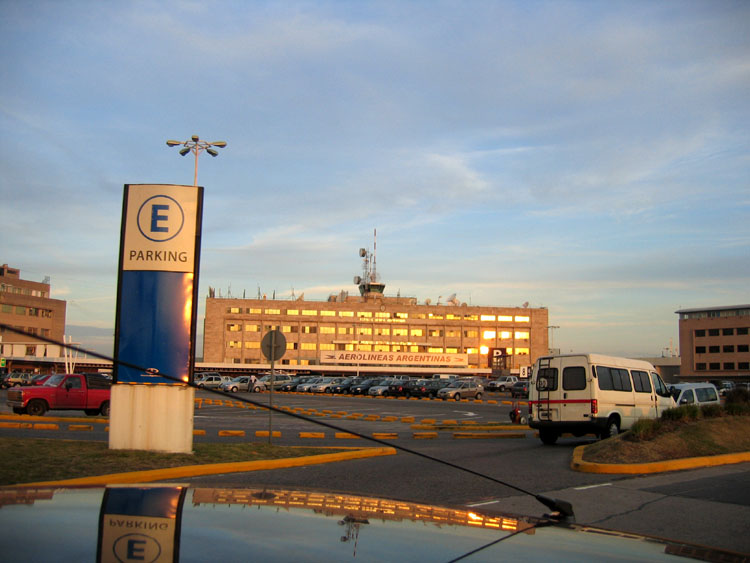
A few last photos taken at the airport waiting for our plane, or at home. First, Diet Pepsi in Argentina is sold as Pepsi light. Diet Pepsi is easier to find in Argentina than in Germany.
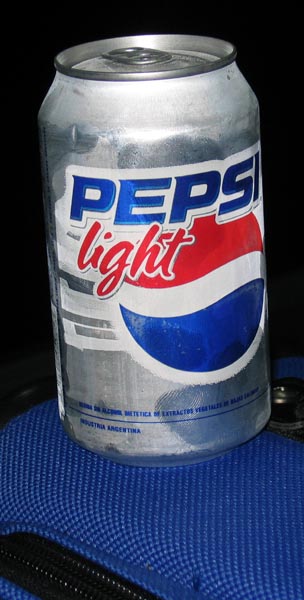
Second, here are some samples of Argentine currency. One US dollar was worth close to three Argentine pesos when we were there.

Third, here are some samples of Argentine coinage.
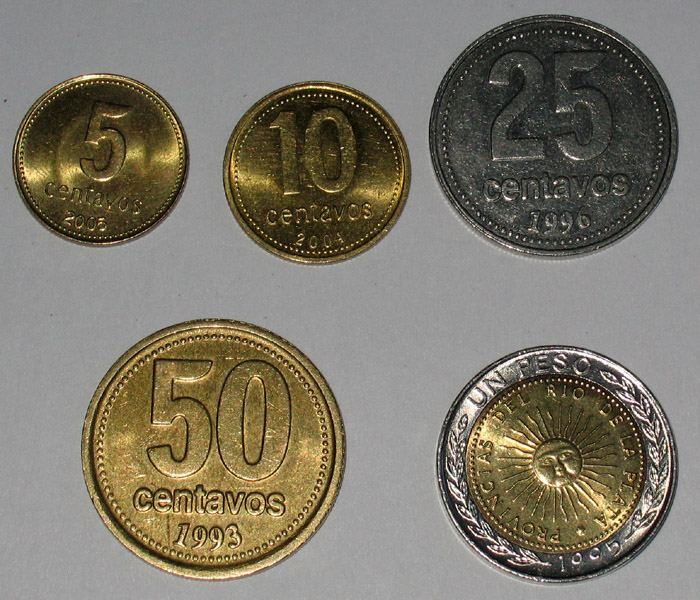
Fourth, here is a wallet made from capybara skin, or as they say, carpincho. (The capybara is of course the world's largest rodent, weighing up to 140 pounds.)
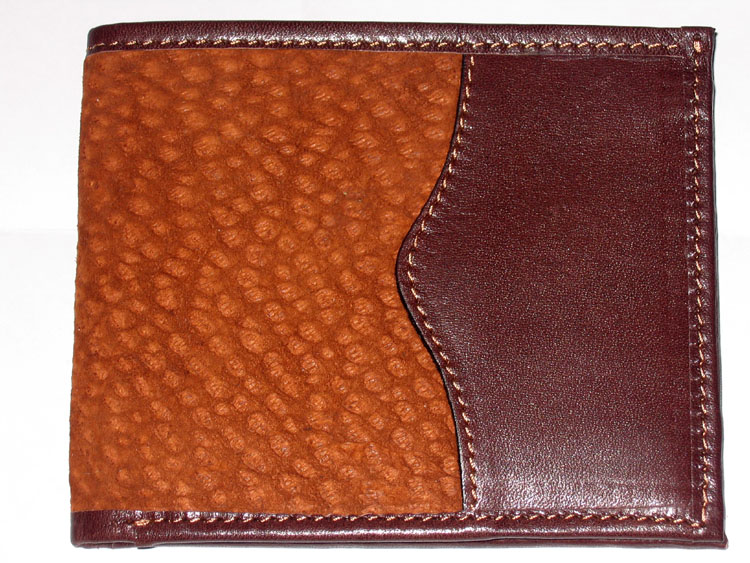
We used this dictionary a lot. I got it at Barnes & Noble before we left.
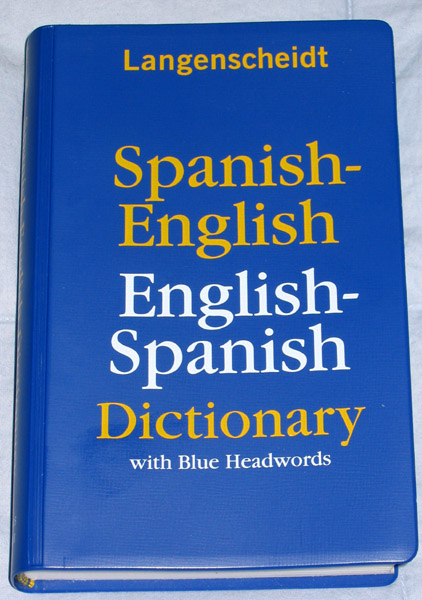
It was a great trip. I highly recommend a visit to Argentina! There is a lot more to see as well, including the Iguazú falls on the northern border, the Patagonia mountains and the growing Perito Moreno glacier, and one of the southernmost cities in the world, Ushuaia. I cannot wait to go back!
Created: 10 Aug 2006 Modified: 26 Jan 2007
